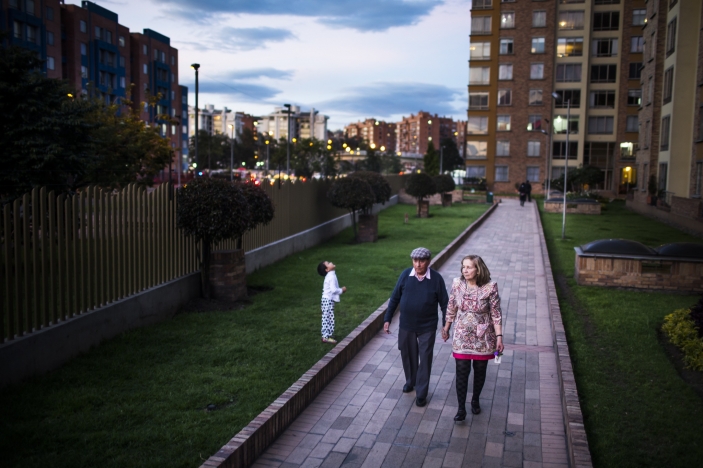
This October, the United Nations Conference on Housing and Sustainable Urban Development, otherwise known as Habitat III, will be held in Quito, Ecuador.
It has been called to bolster commitments to the sustainable development of urban environments and is key to achieving the recently agreed Sustainable Development Goals, with their ambition to “leave no one behind”.
Already over 500 million older people live in urban areas. As people flood to cities and lifespans increase, this figure will soar. By 2050, 66% of the world population will be urban, up from 54% in 2014.
Ensuring our cities are inclusive requires recognition of the reality that more and more people will be growing old in cities. The international community must grasp the challenges we face as urban populations grow, and those people age in these environments.
At the close of Habitat III, member states and other stakeholders will agree the New Urban Agenda. This document will guide governmental and non-governmental actors in their approach to urbanisation for the next 20 years. It must reflect the increasing number of people growing older in cities and their diverse needs. Here are 10 core areas that HelpAge believes it must address:
- Cities for all: We must ensure cities are places where everyone can enjoy the fulfilment of their rights, whatever their age. We must create communities are inclusive, sustainable, secure and prosperous. Age-based discrimination must be eliminated in all its forms to ensure our rights are protected throughout our lives.
- Investing in sustainable transportation: We need affordable, accessible and appropriate public transport as we grow older to maintain social connectedness with friends and families, and to access services and livelihood opportunities. There must be investment in transport to reduce air pollution and congestion, and to ensure urban environments are easy to walk around and person-centred.
- Green and public spaces: Secure and accessible green and public spaces facilitate intergenerational interaction in communities. They support livelihoods, encourage physical activity and provide respite from the busy nature of a city. We must invest in and maintain these spaces for people of all ages to enjoy.
- Intergenerational communities: Urban communities must encourage interaction across social and age boundaries to expand and fortify our social support networks. In the event of a humanitarian disaster, these safety nets can prove invaluable.
- Housing throughout life: We must be empowered to decide how and where we age. Housing must be affordable and designed in such a way that it reflects our changing needs throughout our lives. Policy must support tenure rights for older people and recognise the value of informal settlements.
- Informal street-based livelihoods: Streets and public spaces facilitate individual and small-scale informal economic activity that is vital to millions of older people in low and middle-income countries. This must not be disrupted.
- Healthy urban environments: Cities must facilitate healthy eating and active lifestyles to combat non-communicable diseases. This includes ensuring access to healthy food, and providing safe spaces to walk and cycle.
- Clean air: There must be significant reductions in air pollution to reduce the estimated seven million deaths it is linked to globally each year.
- Living with dementia: As city populations age, cases of dementia are likely to increase. Services and public spaces should be designed to support this trend, with a particular focus on training service providers to be aware of the needs of people with dementia. Calm and safe spaces should be provided to reduce anxiety, and recognisable features and landmarks should be introduced to urban streets to help people with dementia navigate their community.
- Disaster resilience and response: Cities must strengthen the resilience of their communities to ensure people of all ages who face insecurity from climate change, conflict and humanitarian disasters can live in greater safety. This means building on older people’s knowledge, experience and social networks ensure safety and security for all.
